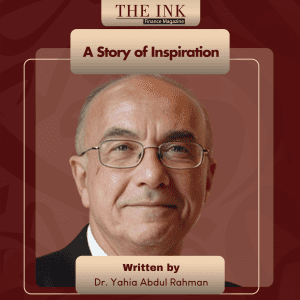A robust interconnection
Islamic Finance and Financial Inclusion
The Islamic economy is a financial system founded on Islamic Sharia principles, aiming to achieve economic development through unconventional means compared to traditional economic systems. One of its prominent features is the emphasis on financial inclusion, reflecting a commitment to equitable wealth distribution and providing economic opportunities for all without discrimination. In this article, we delve into the reality of financial inclusion in the Islamic economy and how it contributes to sustainable development

Financial Inclusion
A concept designed to increase the availability and accessibility of financial services to all members of society, including the impoverished and marginalized. This concept embodies the commitment to fair wealth distribution and equal economic opportunities, serving as a vital complement to social justice principles in the Islamic economy
In this context, the Islamic economy strives to achieve financial inclusion primarily through Islamic finance, as Islamic finance and financial inclusion are essential partners in achieving financial justice and providing economic opportunities for individuals and businesses, both within and outside the Islamic world
Four Steps to Promote Financial Inclusion by Islamic Banks
Rapid Growth of Islamic Banking Industry
Statistics indicate a significant growth in the Islamic banking industry, with the total financial assets of Islamic banks expected to reach around USD 3.8 trillion by the end of 2023. This growth reflects an increasing demand for Sharia-compliant financial services and growing trust in this type of banking
Reaching the Poor and Vulnerable
Islamic banks provide affordable and innovative financial services to the poor and vulnerable. Due to their adherence to Sharia principles, these banks offer such services without usurious interest, making them suitable for low-income groups

Supporting Small and Medium-sized Enterprises (SMEs)
Islamic banks support small and medium-sized businesses by providing financing and financial services. This promotes entrepreneurship, generates
employment opportunities, and contributes to economic development
Rural Financing
Islamic banks play a crucial role in financing rural and agricultural projects, contributing to food security and poverty reduction in rural areas
On the other hand, Islamic banks face bureaucratic challenges in several countries that hinder their ability to provide financial services effectively, impeding financial inclusion. Simplifying regulatory procedures and enhancing cooperation between the public and private sectors are necessary steps to overcome these challenges
Islamic Banks Achieve Financial
Inclusion in Just Four Steps
Financial Inclusion’s Role in Achieving Sustainable Development
Financial inclusion plays an active role in achieving sustainable development by contributing to several key objectives
Poverty Reduction
By providing financial opportunities and access to financial services for the poor, financial inclusion can reduce poverty rates and improve living standards
Boosting Investment and Economic Participation: Financial inclusion can enhance the economic participation of individuals and small businesses by providing affordable financial services
Economic Stability: By providing financial opportunities for all, financial inclusion can promote economic stability and balance
Enhancing Investment Focus: Financial inclusion can increase investment focus on projects and industries with social and environmental significance
The “Arab Financial Inclusion” report indicates that financial inclusion in the Arab world stands at approximately 22%. This underscores the pressing need to expand access to financial services in the region
ACHIEVING WEALTH DISTRIBUTION TARGETS
REQUIRES SUSTAINABILITY
In conclusion
financial inclusion is a vital element in the Islamic economy, contributing to sustainable development and equitable wealth distribution. This concept reflects the Islamic economic commitment to social justice and sustainability. By promoting financial inclusion, the Islamic economy can significantly improve individuals’ lives and enhance economic balance within society


